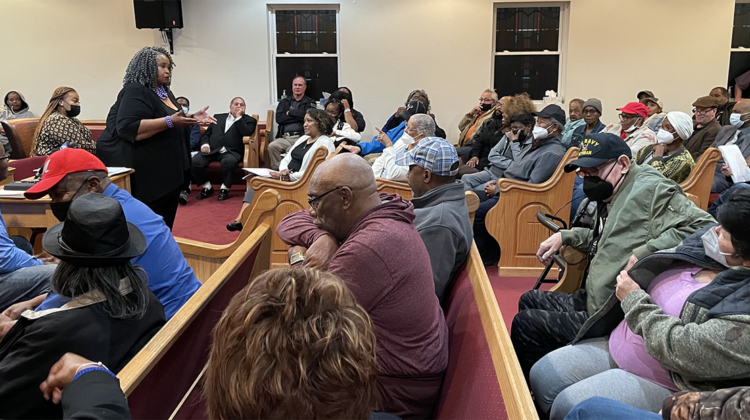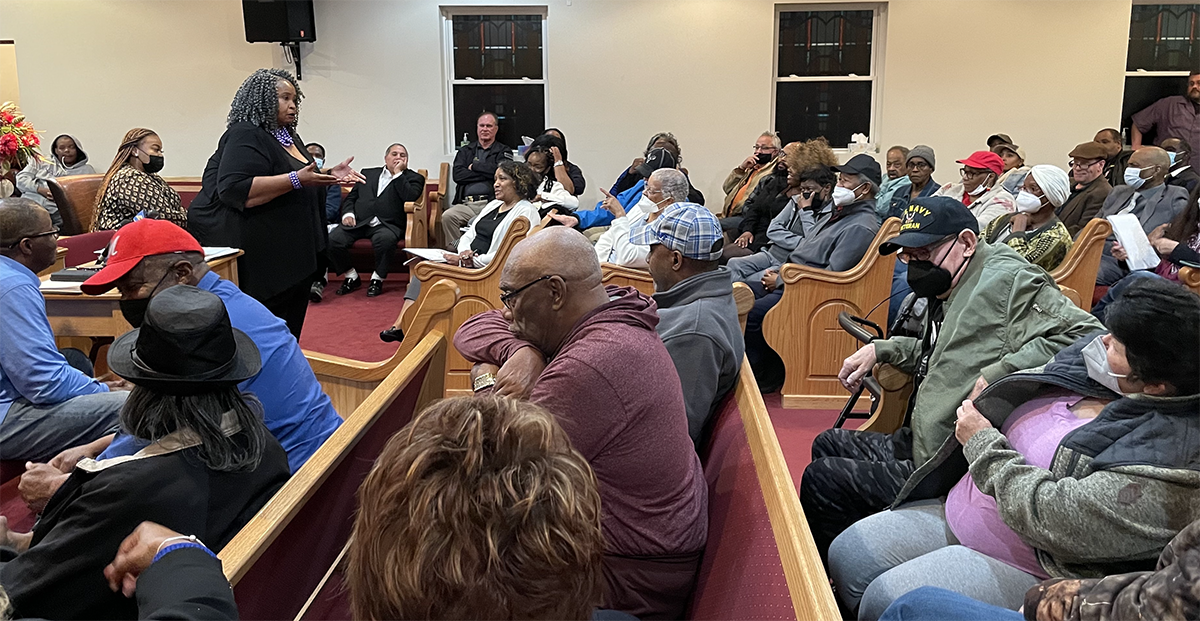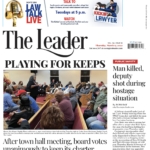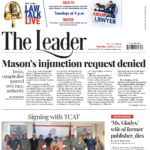

It was a quick, quiet affair.
“Any discussion?”
There was no response, so mayor Emmitt Gooden asked for a vote.
Their hands went up. Not up in the air – Mason’s aldermen are more reserved than that when voting – but up near their faces where the mayor and the town recorder could see them for the count.
“That’s six –” Gooden banged the gavel on the table with force, the weight of a heavy decision being made – “and zero.”
And that was that.
The resolution to retain the charter the town has held since 1915 passed unanimously during a special called meeting Monday night – but there was no question that would be the case.
Its beginnings
Today Mason is a sleepy bedroom community with fewer than 1,000 residents since the closure of the West Tennessee Detention Facility last fall, but it hasn’t always been this way.
The town was incorporated in 1869, 14 years after its humble beginnings around the Memphis & Ohio Railroad. After the Civil War it became a place of wealth and prosperity and was the heart of commerce in Tipton County.
Time was not kind to Mason, though. Fires have devastated the town, travel by rail grew less frequent, and the town lost its significance.
Where it once had a thriving downtown area with retail establishments and eateries, it now has crumbling, dilapidated brick buildings and lots overgrown with grass and weeds.
The cafés – the clubs along Front Street for which Mason has been known for generations – still dot the downtown district and still attract patrons, but they’re growing fewer and farther between.
The town is now, unfortunately, a shell of what it once was.
At a town hall meeting Thursday, residents reminisced about the way things used to be.
“Mason is too far gone now,” one woman said. “I remember when it was a nice place to live.”
On any given day in Mason you’ll find it’s nationally-recognized restaurants – Gus’s World Famous Fried Chicken and Bozo’s Hot Pit BBQ – full of hungry patrons and the latest gossip from around town. Correctional officers were once among those who took their lunch breaks there, but that is no longer the case.
People used to gather at the Exxon station owned by alderman Eddie Noeman, at the corner of highways 59 and 70, before a semi crashed into it in 2018 and destroyed the business.
Today, in addition to the restaurants, Mason has a Dollar General, a liquor store, bank, a funeral home and not many other businesses. Their sales tax dollars have dwindled over the last few generations, too.
The town desperately needs revitalization – its residents and town leaders want the same thing – and stands to benefit more from Blue Oval City than any other town in Tipton County.
Which is why, city leaders think, the timing of the comptroller’s request is suspicious.
A hostile takeover?
Five weeks ago Tennessee Comptroller of the Treasury Jason Mumpower hosted a meeting with city officials and residents in which he served an ultimatum: surrender your charter or your finances will be controlled by the state.
News of the ongoing situation is beginning to make waves through the state and even into other areas of the country after vice mayor Virginia Rivers likened it to a hostile takeover and suggested it was because Mason is a majority Black town with a majority Black board. (There is only one alderman who is not a person of color on the seven-member board.)
Mumpower denies race is a factor in the state’s actions, but critics are comparing the situation to historic events in which people in power forced Black residents from communities like Greenwood, Okla. and Seneca Village, N.Y.
The town has repeatedly been told by the comptroller that Mason will be overlooked if its finances are not in shape when Ford begins building Blue Oval City, but Rivers disagreed.
“The only way Mason will miss out is if Mason surrenders its charter,” she said, calling on the comptroller to assist a majority Black town the same way in which it would assist a majority white town in the same position.
Gloria Sweet-Love, the longtime president of the Tennessee State Conference NAACP, and others rallied against Mason giving up its charter as well.
“Don’t sign away your charter, keep your rights,” she said. “I’ll fight with you from Memphis to Bristol, I’ll fight with you all the way to the supreme court.”
Kelvin Willis, who was the special liasion to former mayor Gwendolyn Kilpatrick during the previous administration, told residents the same thing.
“Keep your charter – you’re sitting on a gold mine.”
Financial control
The metaphorical goldmine is the reason many believe the comptroller’s office is acting now – six months after Ford has announced the state’s biggest development four miles from Mason – instead of at any point during the last two decades.
It’s true: Mason has had its financial issues for at least two decades. And it is true that this administration inherited a lot of problems created even before it was a town whose board is majority Black.
Fixing those problems is this administration’s burden, though.
In the short term, the comptroller’s office is expected to take over control of the town’s finances to help them regain a good standing.
This means any purchase over $100 will have to be approved by the state, for instance, and there may be reductions in the town’s workforce and discretionary spending.
The priority is, Mumpower has said, the town’s utility fund which has been used illegally to supplement its general fund. The state’s Water and Wastewater Funding Board has been investigating since November 2020, their meeting minutes show. According to the board, Mason does not appear to be fulfilling obligations from 2017 in which it was supposed to repay illegal fund transfers from the utility fund after a 2015 investigation.
The minutes state the town estimated as of June 30, 2021, the general fund and the gas fund collectively owed the water and sewer fund $598,019. The state expects the reimbursement payments to be “uncomfortably large.”
A status update is expected at their next meeting on March 24.
Mason’s future
Mason’s town leaders are refuting claims and dreaming big, however.
During the town hall meeting Rivers delivered a 12-point rebuttal to Mumpower’s suggestion that government wasn’t working in Mason which included everything from letting residents know they have submitted an unprecedented five audits in three years to catch up to news of a new historic sales tax share increase with the state and questions about the help Mumpower suggests is available.
“Now it’s time for you to hear the rest of the story,” she said. “This is what the comptroller won’t tell you.”
Following Rivers, the town’s financial officer discussed ways in which the town has benefitted from equipment and building donations for its public safety departments and the ways they’re planning to steer the ship back on a good course.
A strategic plan was also presented with its goals including an increase in economic vitality, wastewater enhancement through the repair or replacement of the wastewater treatment plant, improving streets and modernizing the town’s facilities, and community empowerment through beautification and clean-up efforts. They want to hire a city manager, too, to help their part-time mayor and board.
“Why now?” asked resident Paul Broughton.
Rivers said the comptroller has been trying to turn residents against elected officials, but she’d like to see everyone join together.
“It’s not about color, it’s about unity,” she said. “I’m petitioning to you to not buy everything you’re being sold to you. We’re not going to be defeated, we’re not going to give up. ”






Leave a Reply